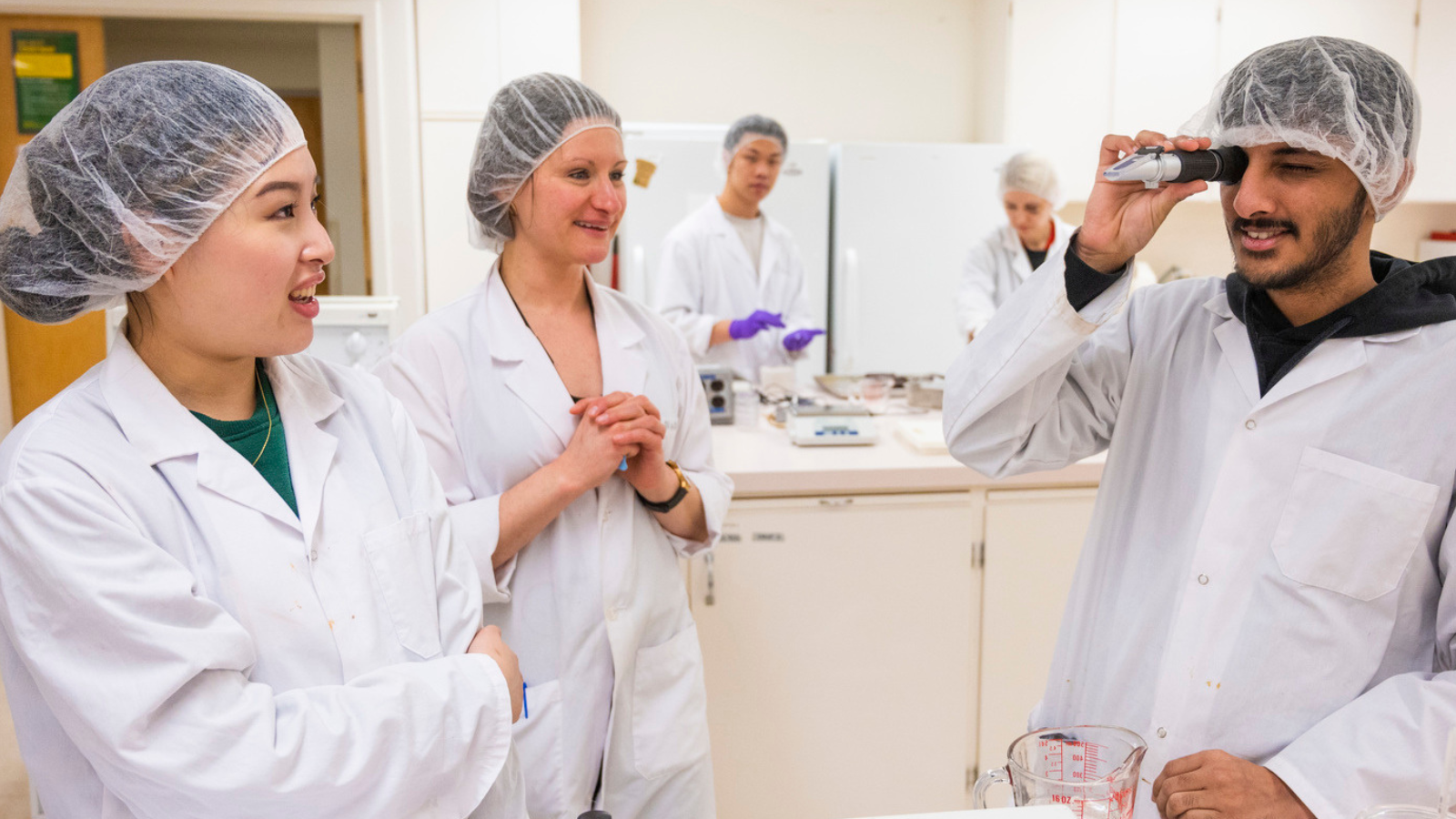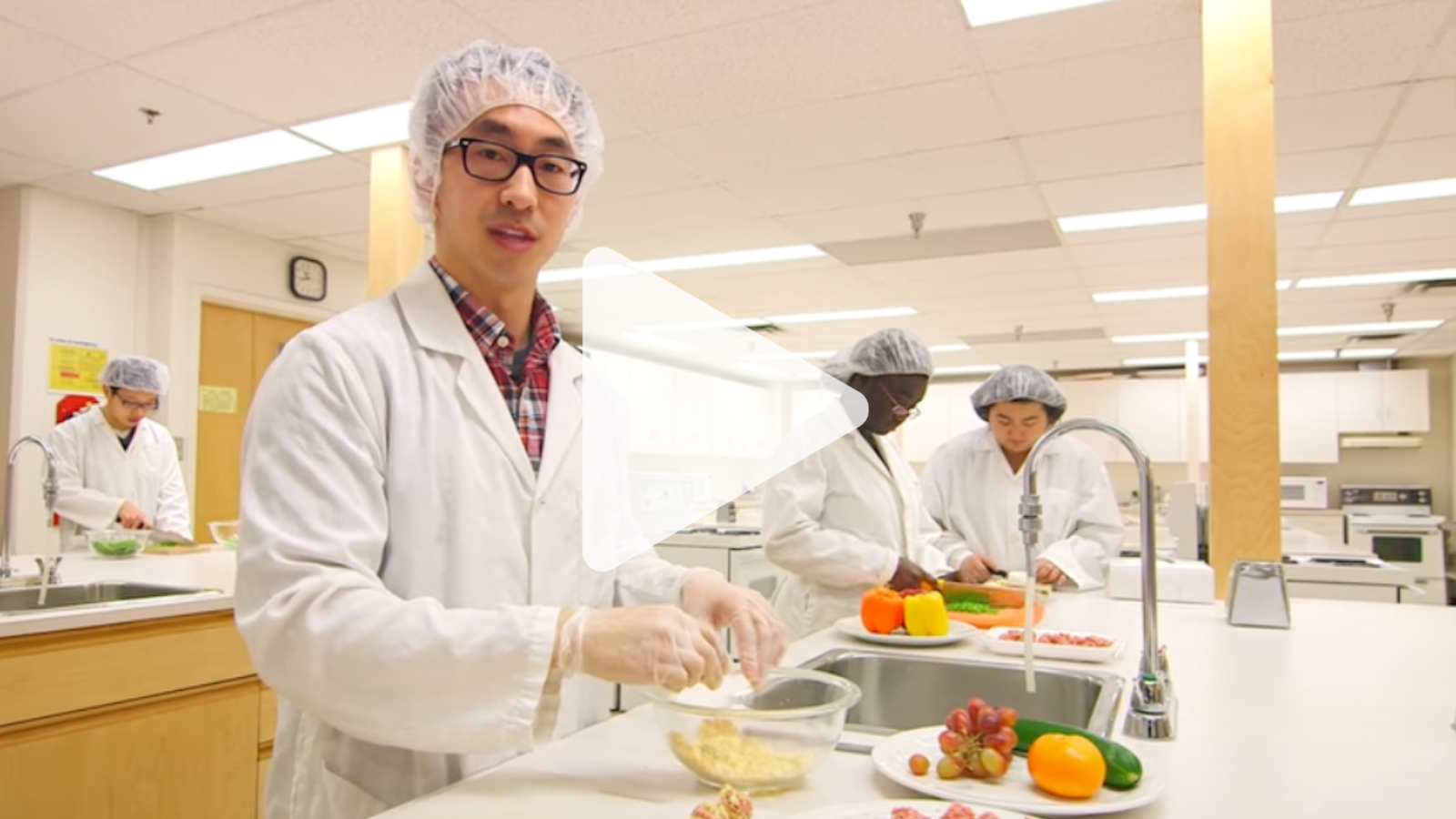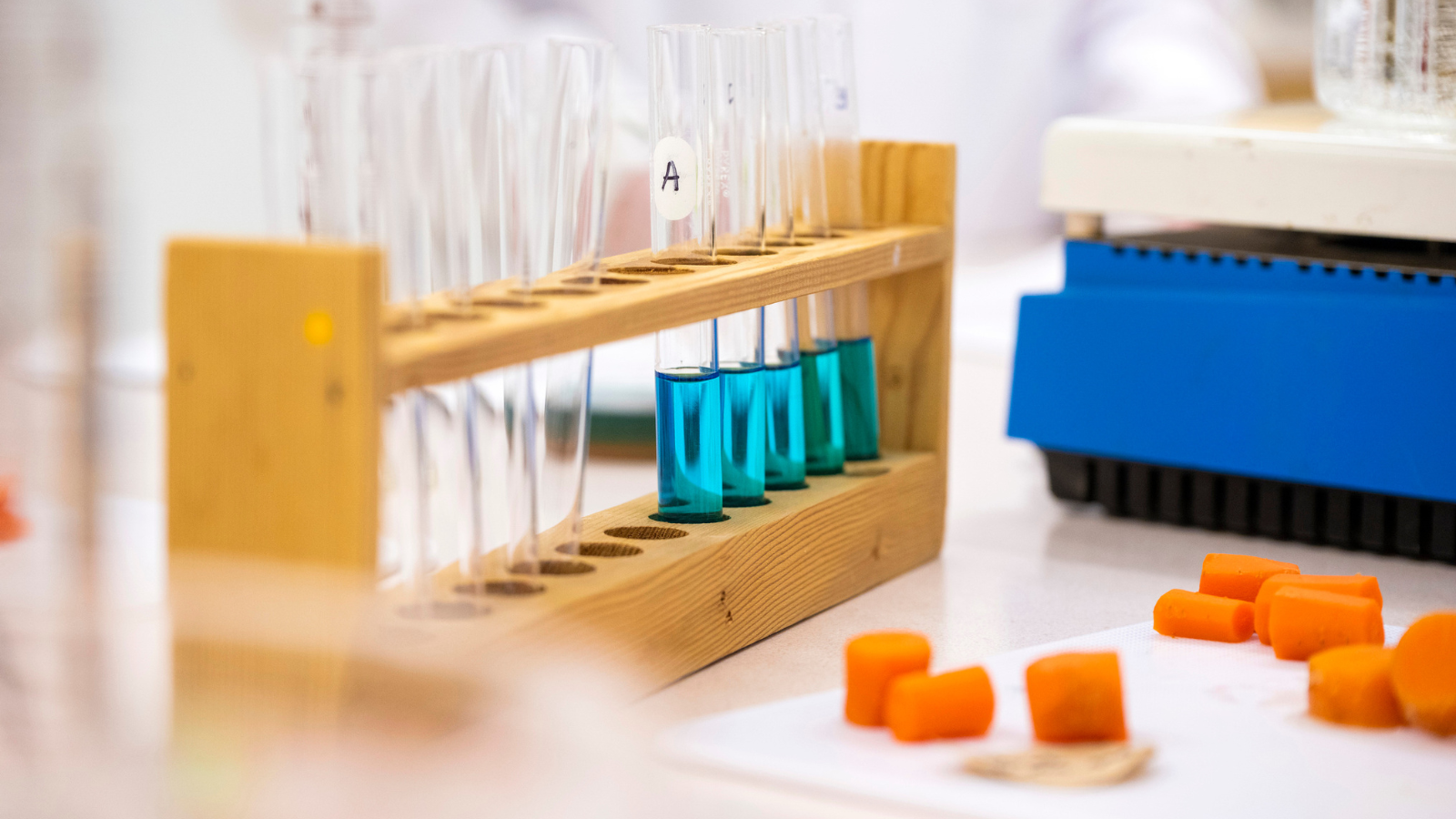What is a Food Science & Technology Specialization?
In this major, you’ll focus on the technologies and systems used in food safety, quality, production, preservation, transportation and distribution. You’ll learn about the chemistry, microbiology and engineering principles underpinning these concepts, and gain practical skills in food product development and production, sensory analysis, nutritional content analysis and food storage and safety. Competencies relevant to industry will also be covered, including the physics of food, how heat transfer works in food, and effective ways to maintain food quality throughout long hours of transportation.
This specialization also meets the guidelines of the Institute of Food Technologists (IFT), which is the U.S. professional organization of food scientists and the only organization that evaluates and approves university degrees in food science. This designation sets graduates up to pursue accredited careers in the food industry and related government sectors.
Is this program for me?
Are you interested in learning how to produce delicious and safe food? This program offers hands-on opportunities to study food science and technology, including laboratory courses on analytical chemistry, food chemistry and food microbiology. The capstone course challenges teams of students to develop a real food product, often with pretty amazing results! You can also take an industry internship for credit, complete an independent research project or participate in the Science Internship Program.
"Matthew’s passion for health and fitness made him interested in learning about food, so he applied his skills in math and physics to the nutrition and food sciences program. He pursued a career in food development, which he calls his dream job.
Featured Courses
Mass and energy balances, thermodynamics, fluid mechanics, and heat transfer in food systems.
Environmental factors affecting the growth, activity and destruction of microorganisms in food and their application to control foodborne illness and spoilage in the food processing and food service industries.
Processes used in food preservation. Dehydration, freezing, sterilization and canning, irradiation and high pressure processing. Effect of processing on food properties.
Integrated exploration of emerging concepts and novel technologies and innovations in food science.
Feature Careers
Food Scientists investigate the chemical, microbiological, physical, and sensory nature of food. They apply their knowledge to developing, processing, preserving, packaging, distributing, and storing foodstuffs. Average Salary: $92,613
Food science technologists work independently or provide technical support in laboratory analysis, food product development, processing, quality assurance, or regulatory positions. Average Salary: $81,510
Source: Government of Alberta, Occupations in Alberta
You may also
be interested in:
Programs related to the Food Science & Technology Specialization:


